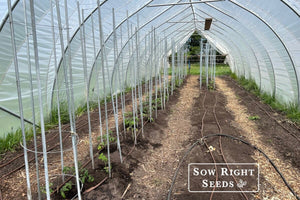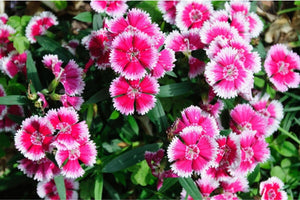Composting Tools & Supplies You'll Appreciate for Easy Home Composting
CompostHome composting is such an excellent way to create free fertilizer for your garden. Simple composting tools are all you need to start a home compost system. See our list of must-have and nice-to-have composting tools to turn your yard and kitchen scraps into fertile garden soil.

To start composting, all you need are compostable materials, a designated spot for your compost, a way to turn it or aerate it, and a way to manage the moisture levels.
The first three composting tools you need are a bucket, a compost bin, and a shovel or pitchfork. Additional tools after that just depend on how you prefer to manage your compost.
You can use common gardening tools to help you maintain your compost without a lot of extra expense. However, some tools can greatly improve your results and your experience. Let’s look at some standard composting tools and how to use them.
Composting Tools
A Bucket
The first step is to collect all those biodegradable vegetable scraps from your kitchen. If you don’t have an easy way to collect your scraps, they are more likely to end up in the trash instead of your compost. Examples include a plain food-grade plastic bucket, a designated compost garbage bin, or a countertop compost pail. An empty ice cream bucket with a lid is a free and easy option.

Compost Bin
A compost bin is just a container for composting in, and you can make your own or buy one. Composting in a bin helps keep the area neat and speeds up the process of decomposition. In addition, a bin with a lid is a great way to keep vermin and pets out of the pile.

Pitchfork or Shovel
As you add browns and greens to your compost pile, you'll need to turn it and move it to the garden. A pitchfork or shovel makes these tasks much easier. A pitchfork is perfect for turning leaves, grass, and large plant debris that is being composted. It can also help sift out decomposed compost. A shovel is excellent for lifting loads of finished compost into a garden bed.

Rake
You’ll be using a rake to collect dead leaves and grass clippings in the fall. A rake is also useful for applying finished compost to lawns and garden beds. You might want both a leaf rake and a bow rake.

Garden Hose or Watering Can
If your compost gets too dry, you need a way to easily add some needed moisture. As mentioned before, these composting tools are common gardening tools that you will already have. There's no need to buy specific hoses or watering cans to add moisture to your home compost pile.

Gloves
It’s important to keep your hands protected, especially when dealing with food scraps and decomposing materials. Regular gardening gloves are usually sufficient. However, if you are handling overly wet compost, you may want to use waterproof gloves.

Wheelbarrow
Although you can compost without one, a wheelbarrow is helpful for hauling large quantities of compostables to the composting area and finished compost to the garden. You'll appreciate a wheelbarrow even more if you have a large property and need to move lots of leaves and garden waste. Rolling a wheelbarrow is less taxing than carrying multiple loads in buckets.

Compost Thermometer
A compost thermometer lets you know how hot your compost is. For most of us, this compost tool falls in the “nice to have” category, but you can also tell your compost is heating up by keeping an eye on it. However, if you’re composting anything that needs to stay at a specific temperature for a prolonged time for safety reasons, then a thermometer is essential.

Compost Tumbler
A compost tumbler is a rotating compost bin. Again, you can buy your own or make one yourself. Tumblers have the advantage of being easy to turn, which aerates your compost. Aerating and rotating your compost helps to keep bad odors under control and manage moisture levels. It accelerates the decomposition process even more by making sure that your materials are well mixed.

Aerator or Turner
Turning your compost adds necessary oxygen, which keeps the microorganisms in your compost healthy and active. Your pitchfork or shovel can do this job, or you can buy a tool designed to make this task quick and easy.
Compost Sifters
This is a nice item to have that can help to remove large pieces that haven’t completely broken down from your finished compost. A compost sifter can be made from common garden supplies and is also useful for sifting soil.
Hand Trowel or Hand Cultivator
These handheld tools are especially helpful for working with small compost piles and raised garden beds. Their small size makes it easy to manipulate up close in smaller spaces. A hand trowel can dig and a cultivator can spread dirt and compost.

As you can see, you probably have most of the composting tools you need already, or you can come up with a DIY solution without much effort or expense.
Don’t feel like you have to buy every gadget and tool to be successful. The most important thing is to get started! Work with what you have. Many ordinary garden tools are very useful for composting. You can always add more tools as you see a need.
Written by Teresa Chandler
Popular Posts
-

Step-by-Step Plan for The Best DIY Tomato Cage We've Ever Built
-

How to Plant and Grow Dianthus Flowers from Seed






Leave a comment